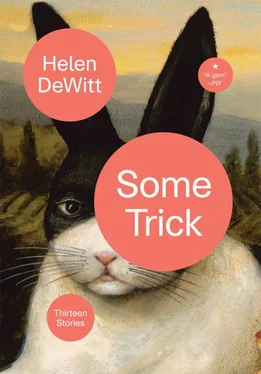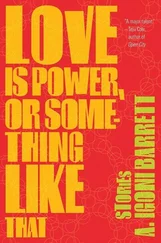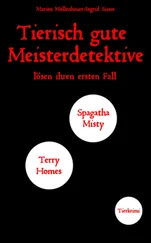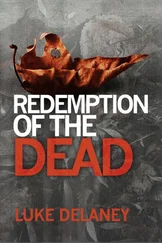‘I wouldn’t mind having a look at that,’ says X.
‘I’ll have to show it to you some time,’ say I.
‘It’s not that late,’ says X. ‘I can come by your place.’
‘Oh,’ say I. ‘Oh, OK.’
My place is very small. I have use of the kitchen, and a room on the second floor with a narrow view of the canal and swans. X and I sit at the kitchen table, surrounded by books about deaths of authors. I have Noyes’ biography of Voltaire, and Pomeau, both with extensive discussions of the death of Voltaire. Noyes also includes a description of a visit to Voltaire by Boswell. Besides these I have the volume of Boswell’s journals which includes his interview with the dying Hume. I say that I think I once read something somewhere about the death of Foucault, but I can’t remember where.
‘The thing that interests me,’ I say. ‘One of the things that interest me is the way there is this emphasis on inserting the body of the writer into the scene, as if making a connection between this physical presence and the derniers mots will somehow make these specially valid. Look at Noyes.’ I pick up the book.
‘“We must obviously not picture him here with the ‘eternal grin’ of Mr Lytton Strachey, but with the blood-stained rag at his lips, and eyes that had been looking into the face of Death. Those eyes are turned for a moment, with the curious wonder which is a sick man’s only way of reproach, upon a secretary who is trying to defeat a purpose definitely decided upon before this illness occurred.”
‘The blood-stained rag,’ I say, ‘says this is real and true. The document is genuine. Its statements may be attached to Voltaire.’
X is flipping through Pomeau.
I start rehearsing facts and dates. On February 26, 1778 Voltaire took confession and signed a statement: ‘ Je meurs dans la Religion Catholique où je suis né, espérant de la miséricorde divine, qu’elle daignera pardonner toutes mes fautes, et que si j’avais jamais scandalisé l’Eglise, j’en demande pardon à Dieu et à elle .’ He refused to take the Sacrament because he was spitting up blood and might ‘spit up something else’ (the exact words are disputed). On February 28 he issued the following statement: ‘ Je meurs en adorant Dieu, en aimant mes amis, en ne haïssant mes ennemis, et en détestant la superstition .’ At the time of his death, he was attended by the curé of Saint-Sulpice, La Harpe, and Prince Bariatinsky. The curé asked whether he recognised the divinity of Jesus Christ. Voltaire replied, ‘ Laissez-moi mourir en paix .’
X has found Pomeau’s analysis of the confession. ‘Wouldn’t take the sacrament — says he dies in the church, not a member of it — second statement the real Voltaire — Whew! “ Il était mort en théiste, non en chrétien .”’
‘Whereas Noyes,’ say I, ‘says Voltaire’s early religious training gave him a strong sense of the sanctity of the host.’
X puts a hand on my knee.
‘Boswell sounded Voltaire out on immortality,’ I say. ‘Boswell wore his flowered velvet at the interview. Noyes smiles up his sleeve at this: if the bloody rag is the mark of intellectual commitment, the flowered velvet is that of silly Scottish dilettantism. Boswell asks whether immortality is not a noble idea. Voltaire agrees, but thinks it more desirable than likely. “ Potius optandum quam probandum ” — isn’t that a great line? On Voltaire’s authority, Boswell goes to see Voltaire’s doctor for confirmation that Voltaire had never been afraid of death.’
I look for this in Noyes, and read: ‘“Had he any horror of it?” “No! The more seriously ill he is, the better Deist he becomes…” “Ah, well,” says Boswell, “I can say all that, then, on the best authority. M. de Voltaire bade me ask you whether he feared death, as ministers of religion had affirmed.”’
X and I are smiling. We are both charmed by the flowered velvet. X’s hand moves up my thigh. I have noticed this tendency to reductionism in X before. The text is infinitely variegated, the subtext always the same. I tried once to resist this by accusing X of believing in final causes — that for the sake of which the rest is there — but it didn’t work. X said I took everything personally. X takes nothing personally: X discussed the deconstruction of teleology and put a hand on my knee.
What is a subtext? You may think of it as a movement in the circumambient language, whose presence you divine by distortions and ripples in the text; what lies between the lines is as invisible, as plain to the eye as the breeze which stirs the leaves of the copper beech in the quadrangle, the high wind that toppled trees in Hyde Park. And we know that the disruption is not in one direction only: the text is a kind of windbreak.
One walks quicker with the wind at one’s back. I feel the subtext pushing us forward, and I am rather afraid it will outstrip the text altogether, before I have got to Boswell and Hume, so that — although I could say a good deal more about the ‘solemn and singular conversation’ — I hasten to open Boswell in Extremes, 1776–78 , and bring to X’s attention Boswell’s recollections of the day when he was too late for church, and went to see David Hume who was a-dying.
‘“I found him alone, in a reclining posture in his drawing-room. He was lean, ghastly, and quite of an earthy appearance. He was dressed in a suit of grey cloth with white metal buttons, and a kind of scratch wig. He was quite different from the plump figure which he used to present.”
‘You see what I mean,’ I say, ‘ — the physical presence, with its marks of imminent dissolution, guarantees the seriousness of the speaker — at the same time that it threatens permanent absence of the speaker. This, it says, is your last chance to find out what he really thought.’
‘Yeh,’ says X. ‘Basically it’s your capitalist perspective on meaning as property: authorial presence can be bequeathed to some textual children — others may be disinherited. Boswell’s hoping for a bit of melodrama — a deathbed scene where the Treatise and Enquiry are cut out of the will.’ X squeezes my thigh.
I read rapidly:
‘“I had a strong curiosity to be satisfied if he persisted in disbelieving in a future state even when he had death before his eyes. I was persuaded from what he now said, and from his manner of saying it, that he did persist. I asked him if it was not possible that there might be a future state. He answered it was possible that a piece of coal put upon the fire would not burn.”’
‘Straight out of the Enquiry ,’ says X. ‘If Hume had had a Pomeau he’d have been cheering. Il était mort en athéiste non en théiste .’
‘The bulk of my estate,’ say I, ‘I leave to my beloved son, An Enquiry Concerning Human Understanding .’
‘Boswell writes Hume very well, doesn’t he,’ says X. X puts an arm round my shoulders and looks down at the book in my lap.
We read together:
‘“Well,” said I, “Mr Hume, I hope to triumph over you when I meet you in a future state; and remember you are not to pretend that you was joking with all this infidelity.” “No, no,” said he. “But I shall have been so long there before you come that it will be nothing new.” In this style of good humour and levity did I conduct the conversation. Perhaps it was wrong on so awful a subject. But as nobody was present, I thought it could have no bad effect. I however felt a degree of horror, mixed with a sort of wild, strange, hurrying recollection of my excellent mother’s pious instructions, of Dr Johnson’s noble lessons, and of my religious sentiments and affections through the course of my life. I was like a man in sudden danger eagerly seeking his defensive arms; and I could not but be assailed by momentary doubts while I had actually before me a man of such strong abilities and extensive inquiry dying in the persuasion of being annihilated. But I maintained my faith.’
Читать дальше












